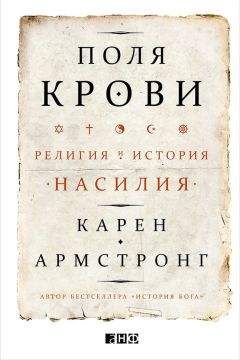1314
Hodgson, Venture of Islam, 3, pp. 199–201; G. W. F. Hegel, The Philosophy of Right, paragraphs 246, 248
Kautsky, Political Consequences of Modernization, pp. 60–61
Hodgson, Venture of Islam, 3, p. 208; Bassam Tibi, The Crisis of Political Islam: A Pre-Industrial Culture in the Scientific-Technological Age (Salt Lake City, Utah, 1988), pp. 1–25
Hodgson, Venture of Islam, 33, pp. 210–12
O’Connell, Arms and Men, p. 235; Percival Spear, India (Ann Arbour, Mich., 1961), p. 270
Daniel Gold, ‘Organized Hinduisms: From Vedic Truth to Hindu Nation’, in Martin E. Marty and R. Scott Appleby, eds, Fundamentalisms Observed (Chicago and London, 1991), pp. 534–37
Wilfred Cantwell Smith, The Meaning and End of Religion: A New Approach to the Religious Traditions of Mankind (New York, 1964), pp. 61–62
Patwant Singh, The Sikhs (New York, 1999), p. 28
Guru Garth Sahib, 1136, in ibid., p. 18
John Clark Archer, The Sikhs in Relation to Hindus, Christians and Ahmadiyas (Princeton, NJ, 1946), p. 170
T. N. Madan, ‘Fundamentalism and the Sikh Religious Tradition’, in Marty and Appleby, eds, Fundamentalisms Observed, 602
Kenneth W. Jones, ‘The Arya Samaj in British India, 1875–1947’, in Robert D. Baird, ed., Religion in Modern India (Delhi, 1981), pp. 50–52
Madan, ‘Fundamentalism’, p. 605
Ibid., pp. 603–6
Harjot S. Oberoi, ‘From Ritual to Counter Ritual: Rethinking the Hindu – Sikh Question, 1884–1915’, in Joseph T. O’Connell, ed., Sikh History and Religion in the Twentieth Century (Toronto, 1988), pp. 136–40
N. Gould Barrier, ‘Sikhs and Punjab Politics’, in O’Connell, Sikh History
Madan, ‘Fundamentalism’, p. 617
Mumtaz Ahmad, ‘Islamic Fundamentalism in South Asia: The Jama’at-i-Islami and the Tablighi Jamaat’, in Marty and Appleby, eds, Fundamentalisms Observed, p. 460
O’Connell, Arms and Men, pp. 231–35
Ibid., p. 191
Ibid., p. 233
G. W. Steevans, With Kitchener to Khartoum (London, 1898), p. 300.
Speech of Sir John Ardagh, 22 June 1899, in The Proceedings of the Hague Peace Conference (London, 1920), pp. 286–87
Elbridge Colby, ‘How to Fight Savage Tribes’, American Journal of International Law, 21, 2 (1927); выделено автором
Ernest Gellner, Nations and Nationalism (New Perspectives on the Past) (Oxford, 1983).
Anthony Giddens, The Nation-State and Violence (Berkeley, 1987), p. 89
Ibid., pp. 85–89; William T. Cavanaugh, Migrations of the Holy: God, State, and the Political Meaning of the Church (Grand Rapids, Mich., 2011), pp. 18–19
Benedict Anderson, Imagined Communities: Reflections on the Origin and Spread of Nationalism (London and New York, 2003) (Андерсон Б. Воображаемые сообщества. – М.: Канон-Пресс-Ц, 2001.)
Mark Levene, Genocide in the Age of the Nation-State. Vol. III: The Rise of the West and the Coming of Genocide (London and New York, 2005), pp. 26–27, 112–20; David Stannard, American Holocaust: The Conquest of the New World (New York and Oxford, 1992), p. 120; Ward Churchill, A Little Matter of Genocide: Holocaust and Denial in the Americas, 1492 to the Present (San Francisco, 1997), p. 150; Anthony F. C. Wallace, Jefferson and the Indians: The Tragic Fate of the First Americans (Cambridge, Mass., 1999)
Norman Cantor, The Sacred Chain: A History of the Jews (London, 1995), pp. 236–37
John Stuart Mill, Utilitarianism, Liberty, and Representational Government (London, 1910), pp. 363–64 (Милль Дж. С. Утилитаризм. – Ростов-на-Дону: Донской издательский дом, 2013.)
Цит. по: Antony Smith, Myths and Memories of the Nation (Oxford, 1999), p. 33
Цит. по: Levene, Genocide, pp. 150–51; ср. C. A. Macartney, National States and National Minorities (London, 1934), p. 17
Bruce Lincoln, Holy Terrors: Thinking about Religion after September 11, 2nd ed. (Chicago and London, 2006), pp. 62–63
Johann Gottlieb Fichte, ‘What a People Is, and What Is Love of Fatherland’, in Fichte, Addresses to the German Nation, ed. and trans. Gregory Moore (Cambridge, 2008), p. 105 (Фихте И.-Г. Речи к немецкой нации. – Рязань: Канон+, 2008.)
Zinn, People’s History, pp. 23–58; Basil Davidson, The African Slave Trade (Boston, 1961); Stanley Elkins, Slavery: A Problem of American Institutional and Intellectual Life (Chicago, 1959); Edmund S. Morgan, American Slavery, American Freedom: The Ordeal of Colonial Virginia (New York, 1975).
Лев. 25:45–46; Быт. 9:25–27, 17:12; Втор. 20:10–11; 1 Кор. 7:21; Рим. 13:1, 7; Кол. 3:22, 4:1; 1 Тим. 6:1–2; Фил., passim
Thornhill, ‘Our National Sins’, in Fast Day Sermons or The Pulpit on the State of the Country, ed. anonymous (Charleston, SC, 2009 ed.), p. 48
Beecher, ‘Peace Be Still’, in ibid., p. 276
Van Dyke, ‘The Character and Influence of Abolitionism’, in ibid., p. 137
Lewis, ‘Patriarchal and Jewish Servitude: No Argument for American Slavery’, in ibid., p. 180
Noll, Civil War, pp. 1–8
Ibid., pp. 19–22; ‘The Rise and Long Life of the Protestant Enlightenment in America’, in William M. Shea and Peter A. Huff, Knowledge and Belief in America: Enlightenment Trends and Modern Thought (New York, 1995), pp. 84–124; May, Enlightenment in America, passim.
James M. McPherson, For Cause and Comrades: Why Men Fought in the Civil War (New York, 1997), p. 63; ‘Afterword’, in Randall M. Miller, Harry S. Stout and Charles Reagan Wilson, eds, Religion and the American Civil War (New York, 1998), p. 412
Noll, Civil War, pp. 52–79
Beecher, ‘Abraham Lincoln’, in Patriotic Addresses (New York, 1887), p. 711
Bushnell, ‘Our Obligations to the Dead’, in Building Eras in Religion (New York, 1881), pp. 328–29
O’Connell, Arms and Men, pp. 189–96
Grady McWhiney and Perry D. Jamieson, Attack and Die: The Civil War, Military Tactics, and Southern Heritage (Montgomery, Ala., 1982), pp. 4–7
Bruce Cotton, Grant Takes Command (Boston, 1968), p. 262
O’Connell, Arms and Men, pp. 198–99
Noll, Civil War, pp. 90–92
Alastair McGrath, The Twilight of Atheism: The Rise and Fall of Disbelief in the Modern World (London and New York), pp. 52–55, 60–66.
James R. Moore, ‘Geologists and Interpreters of Genesis in the Nineteenth Century’, in David C. Lindberg and Ronald L. Numbers, eds, God and Nature: Historical Essays on the Encounter between Christianity and Science (New York, 1986), pp. 341–43
Noll, Civil War, pp. 159–62
Richard Maxwell Brown, Strain of Violence: Historical Studies of American Violence and Vigilantism (New York, 1975), pp. 217–18
O’Connell, Arms and Men, 202–10; McNeill, Pursuit of Power, pp. 242–55
I. F. Clarke, Voices Prophesying War: Future Wars 1763–3749, rev. ed. (Oxford and New York, 1992), pp. 37–88
Paul Johnson, A History of the Jews (London, 1987), p. 365
Zygmunt Bauman, Modernity and the Holocaust (Ithaca, NY, 1989), pp. 40–77
Amos Elon, The Israelis: Founders and Sons, 2nd ed. (London, 1981), p. 112
Ibid., p. 338
Eric J. Leed, No Man’s Land: Combat and Identity in World War I (Cambridge, UK, 1979), pp. 39–72
Stefan Zweig, The World of Yesterday: An Autobiography (New York, 1945), p. 224. [Пер. Г. Кагана. Цит. по: Цвейг С. Вчерашний мир. – М.: Вагриус, 2004. – Прим. пер.]
Leed, No Man’s Land, p. 55
Zweig, World of Yesterday, p. 24; ср. Leed, No Man’s Land, p. 47
Цит. по: H. Hafkesbrink, Unknown Germany: An Inner Chronicle of the First World War Based on Letters and Diaries (New Haven, Conn., 1948), p. 37
Rudolf Binding, Erlebtes Leben (Frankfurt, 1928), p. 237
Carl Zuckmayer, Pro Domo (Stockholm, 1938), pp. 34–35
Franz Schauwecker, The Fiery Way (London and Toronto, 1921), p. 29
Цит. по: Carl Schorske, German Social Democracy, 1905–1917 (Cambridge, Mass., 1955), p. 390
Leed, No Man’s Land, p. 29
P. Witkop, ed. Kriegsbriefe gefallener Studenten (Munich, 1936), p. 100
Lawrence, The Mint (New York, 1963), p. 32
De Beauvoir, Memoirs of a Dutiful Daughter (New York, 1974), p. 180 (де Бовуар С. Воспоминания благовоспитанной девицы. – М.: Согласие, 2004.)
Emilio Lussu, Sardinian Brigade (New York, 1939), p. 167
Подробнее см.: мою книгу: The Battle for God: A History of Fundamentalism (London and New York, 2000). (Армстронг К. Битва за Бога. История фундаментализма. – М.: Альпина нон-фикшн, 2013.)
Кальвин, Комментарий на Быт. 1:6; см.: The Commentaries of John Calvin on the Old Testament, 30 vols, Calvin Translation Society, 1643–48, 1, p. 86. Подробнее о древних иудейских и христианских истолкованиях Библии, которые не придерживались буквалистского подхода, см.: мою книгу: The Bible: The Biography (London and New York, 2007) (Армстронг К. Библия. Биография книги. – М.: АСТ, 2008)
Hodge, What Is Darwinism? (Princeton, NJ, 1874), p. 142
2 Фес 2:3–12; Откр 16:15; Paul Boyer, When Time Shall Be No More: Prophecy Belief in Modern American Culture (Cambridge, Mass., 1992), p. 192; George Marsden, Fundamentalism and American Culture: The Shaping of Twentieth-Century Evangelicalism, 1870–1925 (New York and Oxford, 1980), pp. 154–55




